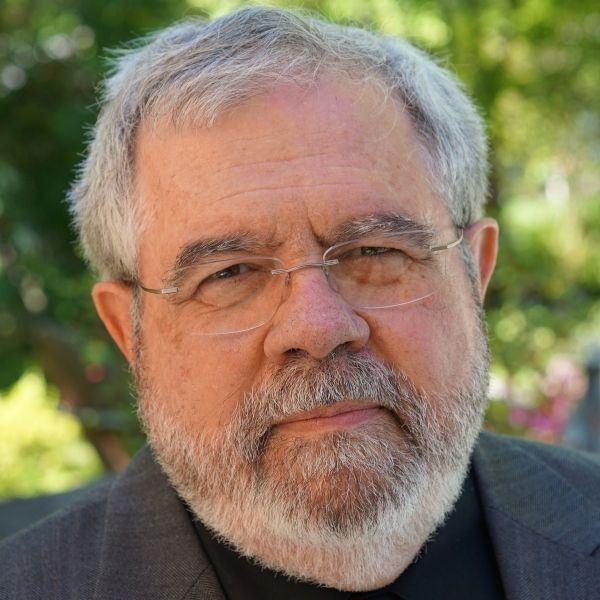Will Biden Administration Hold Fast or Cave on Punishing Corrupt Credit Suisse?
Unless the Biden administration loses its nerve, one of the most corrupt banks in the world – Credit Suisse – will soon be banned from the lucrative business of steering pension fund assets into opaque investments where thievery and poor performance are easy to hide.
If you haven’t heard this news it’s because nothing has appeared about it in The New York Times, The Wall Street Journal, The Washington Post or even Bloomberg. We checked those and other influential news organizations and found zip.
That’s not surprising because there was no Department of Labor press release declaring its plan to act against Credit Suisse. The action was disclosed yesterday in a routine publication of federal government actions.
Credit Suisse’s status ‘is a privilege, not a right, and U.S. taxpayers should not be paying for the U.S. Government to bend over backwards to ensure that a convicted entity and its affiliates get to enjoy a privileged status under U.S. law.’
“The Convictions and other alleged Credit Suisse-related criminal misconduct constitute serious years-long systemic criminal misconduct that counsels against” letting the Swiss bank retain its privileged status, the Labor Department notice declared. The privilege was to put pension money into investments other than stocks, bonds, mutual funds and the like.
Credit Suisse would be granted one year to disentangle itself from American pension funds under the notice that the Department of Labor posted April 19 in the Federal Register, a document few news organizations consult despite it being a rich source of what our government is doing.
Like many such notices this one is written in language not meant to be understood by mere mortals, but if you need help with insomnia try this document for numbing your mind.
Privilege Explained
The Labor Department is planning to take away Credit Suisse’s privileged status as a Qualified Professional Asset Manager.
That status allows Credit Suisse to put pension funds it manages into investments that are generally prohibited. The qualified status reduces the risk of Credit Suisse executives and pension trustees being held personally liable for errors, though it does not protect against violating the bank’s duty of loyalty, also known as fiduciary duty, to the pension plan.
Why do banks promote exotic and typically opaque investments? Typically, the investments generate lucrative fees, certainly larger fees than investing in index funds, a reliable way to increase wealth.
Advocates for Integrity
The Labor Department action comes after years of efforts by a handful of determined of people in the U.S., Australia and Europe who have worked to expose bank crimes and have insisted on meaningful serious punishments.

James S.Henry, DCReport’s investigative economics editor, is among those people as is William K. Black, the law professor responsible as a banking regulator for nearly 1,000 high-level bankers going to prison during the savings and loan debacle three decades ago. The most determined advocate is Paul M. Morjanoff, an Australian who specializes in recovering money from fraudulent transactions.

Credit: Kristen Helstrom
Tim Blixseth, a lumber baron, record producer and resort developer, sent the Labor Department a scathing commentary in September 2014, when the Labor Department began accepting comments on whether to let Credit Suisse bank to continue advising pension funds on exotic investments.
“Credit Suisse has a long and exhaustive history of disregard for laws of the United States as well as other countries,” he wrote. “Credit Suisse has been fined billions of dollars for its nefarious actions. Their actions are not a one-time mistake by a rogue employee, but rather a multi-year, multi-occurrence, coordinated, and premeditated enterprise.”
Blixseth was one of 13 resort developers who took out loans from Credit Suisse. All 13 resorts went bankrupt. The borrowers said Credit Suisse deceived them with unusual terms that violated banking industry standards. Credit Suisse insisted it did nothing wrong.
Heather A. Lowe, a lawyer for the nonprofit Global Financial Integrity, made the most direct and understandable appeal to take away Credit Suisse’s Qualified Professional Asset Manager status.
Credit Suisse’s status “is a privilege, not a right, and U.S. taxpayers should not be paying for the U.S. Government to bend over backwards to ensure that a convicted entity and its affiliates get to enjoy a privileged status under U.S. law,” Lowe wrote in December 2014.
Two months ago Sen. Elizabeth Warren (D-MA) asked the Labor Department to block Credit Suisse from using its privileged position as a pension funds manager because of its admission of bribery. For decades Warren has worked to expose and punish corruption and predatory practices in banking.
Rap Sheet
Credit Suisse has a long and thoroughly documented history of refusing to turn over money due to heirs of Holocaust victims, helping super-rich Americans cheat on their taxes and making loans using unusual terms that turned into disasters for the borrowers. One of its most recent felonies was punished with a $175.5 million fine. That’s chump change for a bank with assets of about $1.6 trillion. The fine was barely 1/10,000th of those assets.
Credit Suisse has a long rap sheet with 49 violations, according to the Good Jobs First Violation Tracker. Its updated report by Phil Mattera is an instructive read. It is far from the only bank with a history of felonies and other serious offenses as this matrix prepared by James S. Henry shows.
Eight years ago Credit Suisse made a deal to avoid serious punishment for some of its criminal conduct. It paid a fine of $2.6 billion, money that was tax-deductible in Switzerland where it is based. No individual was indicted. Credit Suisse got to keep its American banking license. [Correction: Eight former Credit Suisse employees, none of them high level executives, were indicted over a three year period.]

Credit Suisse’s chief lawyer in negotiating this soft-on-crime deal? Christopher Wray, then a litigation partner at King and Spalding, where he earned $9.2 million in his last year. In addition, Wray apparently was paid directly by outside clients, the largest of which was Credit Suisse.
Ethics Exemption
Donald Trump named Wray FBI director in 2017 after he fired James Comey who would not pledge personal loyalty to Trump. Since then, the FBI has cut back severely on white-collar crime cases. Early in the Obama administration, there were more than 1,000 white-collar prosecutions each month, a figure that fell to under 100 a month under Trump. The number of cases has risen under Biden but is still less than half the number from a decade ago.
As FBI director Wray got a special exemption from federal ethics rules. Wray was granted unrestricted authority to continue participating in matters involving an unnamed client.
Inexplicably, Biden has kept Wray on as FBI director.
You can be sure that over the next few weeks that some of the highest-paid and most skillful white-collar crime and regulatory lawyers in America will be doing everything they can to allow Credit Suisse to keep its privileged position as a manager of pension funds. And even. If they lose, Credit Suisse, after a management shakeup now underway, will surely be back in the future seeking to regain its privileged, and lucrative, status as a Qualified Professional Asset Manager.




